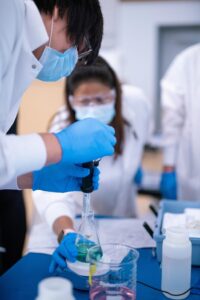Waabnoong Bemjiwang Association of First Nations and Water First announce new training internship for Water Treatment Plant Operators
Next generation of Indigenous Water Treatment Workers are finding solutions through training in Water Trades and Sciences

TORONTO — The Waabnoong Bemjiwang Association of First Nations (WBAFN), a tribal council with six member First Nations in Northern Ontario, and Canadian charity Water First Education & Training Inc. announce their partnership to deliver a drinking water treatment and environmental water science internship program for young Indigenous adults. Approximately 12 interns will be recruited from six participating First Nations communities across the tribal council’s region to pursue Operator in Training (OIT) and Water Quality Analyst (WQA) certifications.
Together, WBAFN and Water First will address local needs for more young and qualified personnel in the water management field to help ensure safe drinking water in communities, not only for today but for future generations as well.
The Waabnoong Bemjiwang Internship is funded through a partnership with the Anishinabek Nation, a regional Indigenous organization with 39 member First Nations across Ontario, and with the support of Water First’s donors. Under the internship program, each intern will accumulate 1,800 hours of on-the-job experience in water treatment plants, which is a part of the certification process. Through the 15-month program, interns will also pursue their water quality analyst certification, which can lead to work in both drinking water treatment and the environmental water field.
“We are extremely excited about the opportunity to partner with Water First and we welcome the support they bring to our member communities’ efforts to provide safe drinking water to residents,” said Irvin George, executive director of the Waabnoong Bemjiwang Association of First Nations. “Existing water treatment staff are doing a great job with available resources, and at the same time, we all acknowledge the need for more young people to enter the water field. We’re hopeful that the successes Water First has had in its previous training partnerships can be repeated here, to help the next generation of local water experts safeguard their communities’ health and well-being.”
“This critical internship program is designed to support and empower young Indigenous adults to enter the field of water science and obtain industry-recognized certifications. With hands-on experience and customized training, the interns will have an important role to play in addressing local water challenges, now and in the future. We look forward to supporting their journey in partnership with the Waabnoong Bemjiwang Association of First Nations,” said John Millar, executive director at Water First.
Discussion about the Waabnoong Bemjiwang training project began in 2019. Water First has implemented two successful internships to date: one that is nearly complete, in partnership with the Bimose Tribal Council and 11 affiliated First Nations, and the other, a pilot, in partnership with the United Chiefs and Councils of Mnidoo Mnising, Wiikwemkoong Unceded Territory, and the Anishinabek Nation, on Manitoulin Island.
“[I’m] learning a lot of things I didn’t know about – source water protection and everything that goes with it. [Water First is] teaching a lot of things that a community needs for clean water,” shares Nathan Copenance, Water First Intern from Washagamis Bay First Nation.
“Clean water to me means life and health,” shares Jonas Esquega, Water First Intern from Wabigoon Lake Ojibway Nation. “I’m very glad for this opportunity that was given to me, which helps provide clean water to this community that I’m part of.”
Many First Nations with drinking water challenges have identified the need for more young, qualified and local personnel to support solving water issues independently and for the longer term. Indigenous communities do not receive adequate education, training and employment support when it comes to attracting and retaining young people in the water science fields. These supports are critical to ensuring the long-term sustainability of Indigenous drinking water systems.
About the Waabnoong Bemjiwang Association of First Nations (WBAFN)
WBAFN’s mandate is to provide advisory and technical services, in conjunction with local leaders, officials, and technicians, to enhance the quality of life for the members of the communities they serve.
www.wbafn.com
About Water First Education & Training Inc. (Water First)
Water First is a registered Canadian charity that addresses water challenges in Indigenous communities through education, training and meaningful collaboration. Water First has partnered with over 50 Indigenous communities across Canada. www.waterfirst.ngo
A photo accompanying this announcement is available at https://www.globenewswire.com/NewsRoom/AttachmentNg/53128674-b510-4d35-9287-5c6ecf41df0d
For more information, please contact:
John Millar
Executive Director
Water First
1-705-994-3456
john@waterfirst.ngo
Jen Atkinson
Director of Operations
Water First
1-905-251-1109
jen.atkinson@waterfirst.ngo
Irvin George
Executive Director
Waabnoong Bemjiwang Association of First Nations
1-705-562-0295
irvin.george@wbafn.com

